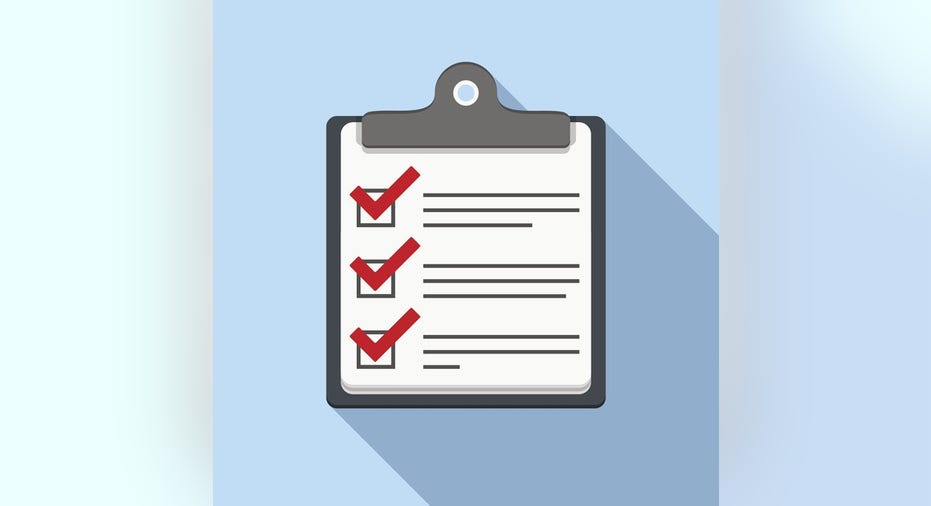5 Mistakes Borrowers Make When Taking Out a Loan

Whether it's a student loan, car loan, mortgage, or something else, just about everybody takes out a loan at some point in their life. Unfortunately, many borrowers make expensive mistakes when signing up for these loans.
Not reading before signing
Big loans usually come with big paperwork. When I took out the mortgage on my house, the title company official handed me a six-inch-thick stack of documents to review. Yes, going through such a mountain of legal documents and disclosures is no fun, but taking the time to review those documents thoroughly now can save you thousands of dollars in the future. That certainly adds up to time well spent.
Image source: Getty Images.
If after reading all that legalese you don't understand something or want to clarify a point or three, make sure you get the answers you need before you sign on the dotted line. The person selling you the loan likely stands to make a fat commission from it, so consider this your way of having him provide value at least equal to what he'll be making off you.
Running up debt right before applying
One of the most significant factors lenders look at is your debt-to-income ratio. They want to make sure you will have enough income available to make the payments on your new loan, in addition to whatever debt you're already paying off. So if you run up a ton of credit card debt getting your house in shape to sell and then apply for a mortgage on a new house, you may have a problem qualifying for the loan. If you plan to take out a large loan in the near future and you already have significant amounts of debt, do what you can to pay it down and resist the impulse to add more debt until you get an official loan approval.
Not shopping around
A loan is a loan is a loan, right? Not exactly. Different lenders have different ideas of what the ideal borrower looks like, so they value certain factors over others when making an offer. And some lenders will be particularly eager to open more of a specific type of loan, so they'll be willing to offer a sweet deal for borrowers interested in those loans. For that matter, if you already have products or services with a particular lender, they may be able to give you a package deal on a new loan. So make a point of getting quotes from several different lenders before making a final decision.
Not having all the paperwork
Before they hand over thousands of dollars to you, loan underwriters want to know a little more about you than just your credit score. Mortgage lenders are particularly interested in background information and will want to see documents ranging from pay stubs and W-2 forms to bank statements and canceled rent checks. And every lender will need to verify your identity; some will be satisfied with just a drivers license or state ID, while others will want to see further documentation such as a Social Security card, birth certificate, or passport. In a worst-case scenario, not having the necessary paperwork may force you to reapply, possibly losing the chance at a better interest rate if rates go up in the meantime. If you're not sure what to bring along to the loan appointment, call the lender and ask what documentation they require.
Focusing only on the interest rate
Lenders are more likely to compete on interest rate than any other feature. A lender offering a particularly good interest rate will plaster the rate all over its ads. And borrowers often fall into line with this way of thinking, making interest rate the deciding factor when comparing loans. However, there's a lot more to a loan than just interest rate. You should also consider:
- How long is the loan term?
- How much are the payments?
- Is the interest rate fixed or variable?
- Is the rate guaranteed for the first year only (in which case, you can expect it to shoot up in year 2)?
- What fees will the lender charge, both upfront and during the repayment period?
- Is the loan secured or unsecured?
How important each factor is will depend on your priorities and your current situation, but you should at least know the answers to each of these questions for every loan you're comparing. That way you can be fairly sure you're getting the best possible deal.
The $16,122 Social Security bonus most retirees completely overlook If you're like most Americans, you're a few years (or more) behind on your retirement savings. But a handful of little-known "Social Security secrets" could help ensure a boost in your retirement income. For example: one easy trick could pay you as much as $16,122 more... each year! Once you learn how to maximize your Social Security benefits, we think you could retire confidently with the peace of mind we're all after.Simply click here to discover how to learn more about these strategies.
The Motley Fool has a disclosure policy.



















